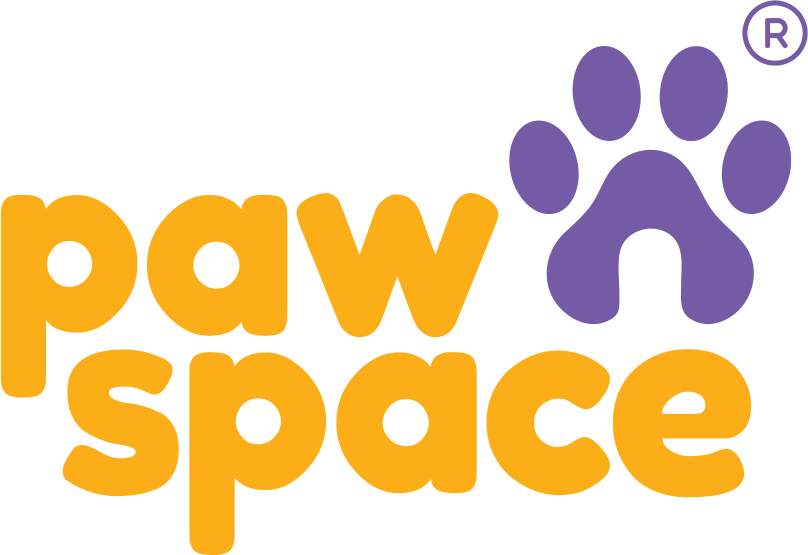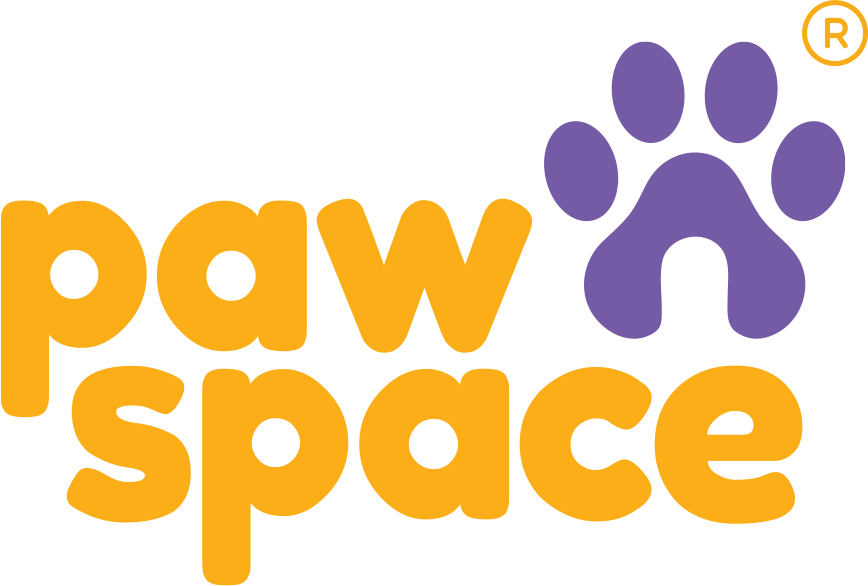Pomeranian
The Pomeranian, a small and lively breed, has its roots in the Pomerania region of northern Europe. Descending from larger Spitz-type dogs, Pomeranians were popularized by European nobility, notably Queen Victoria, who brought them into the spotlight in the 19th century. Known for their distinctive fluffy coats and playful nature, Pomeranians were originally used as herding dogs but are now cherished as affectionate companions.

Male
Ideal height: 15 - 18cm Ideal weight: 2 - 3kg

Female
Ideal height: 15 - 18cm Ideal weight: 2 - 3kg
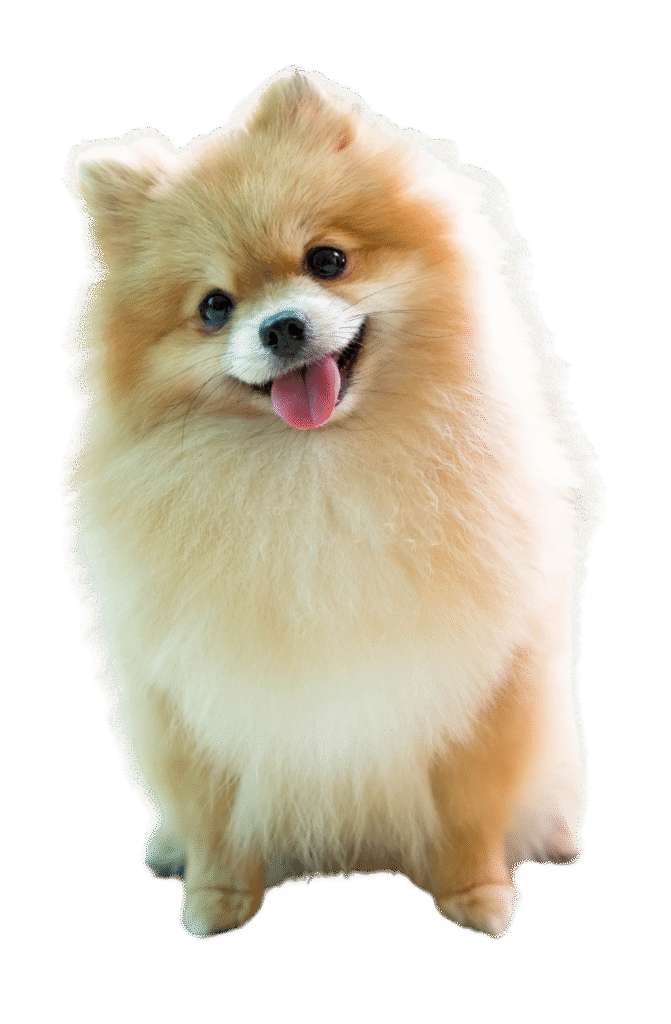
Size
Medium
Life Span
10 – 12 Years
Coat
Color
Medium
Traits & Characteristics
80%
80%
80%
80%
80%

Heat Tolerance
upto 27° C

Cold Tolerance
Upto -6° C

Best Diet for Pomeranian


Carbohydrates
30 – 50%
Protein
20 – 30%
Fats
8 – 16%
Essentials, Vitamins & Minerals
6 – 8%
Fiber
2 – 4%
Total Kcal
1,000 – 1,500
Must have meal for a Pomeranian
Pomeranians need a diet rich in protein, whole grains, vegetables, and healthy fats. Opt for high-quality protein sources, like chicken or fish. Whole grains provide energy, while veggies and fruits offer vitamins and minerals. Healthy fats support skin and coat health. Puppies should eat 3-4 times a day, while adults can have 2 meals. Consult your vet for specific dietary needs.
🐾 Try Our Pomeranian Fresh Food!
Wholesome, freshly cooked meals crafted for your Pomeranian health and happiness.
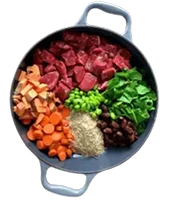
Book a Dog Diet Consultation
Get personalized diet advice for your Pomeranian for Absolutely FREE

Pomeranian Diet
Opting for fresh meals ensures your Pomeranian gets natural, nutrient-rich food that supports healthy growth, strong bones, and a beautiful coat. Pomeranians have fast metabolisms, so balanced meals with controlled portions are key to keeping them fit and active. Fresh meals are easier to digest than dry kibble and help your Pomeranian stay energetic and happy every day.

Protein Based Diet
Pomeranians thrive on a protein-rich, fresh diet that keeps their muscles strong, coat glossy, and digestion smooth. Vegetables like carrots, peas, and spinach provide fiber and essential vitamins, while lean proteins such as chicken, lamb, or fish supply high-quality protein and omega-3s.
Simple meals like chicken with rice and veggies, or fish with quinoa, support Pomeranians’ high energy needs. A touch of olive oil or fish oil is great for their coat health.
❌ Avoid harmful foods: onion, garlic, grapes, raisins, avocado, chocolate, xylitol (a sugar substitute), and excess salt.
WEIGHT, STRENGTH AND GUT CONSIDERATE DIET
Pomeranians have a high metabolism but can still be prone to weight gain if overfed. A balanced, portion-controlled diet is very important. Fiber-rich foods like pumpkin and carrots support digestion, while lean proteins keep muscles strong without adding excess calories.
Adding probiotics from fermented foods helps maintain gut balance, while omega-3 fatty acids from fish oil support their joint health and reduce inflammation—especially important as they age.
Consider Their Age
Just like humans, a Pomeranian’s diet changes as they grow.
🐾 Puppies (6-12 months): Need protein-rich, calorie-dense meals to support fast growth and immunity, especially since they can be prone to hypoglycemia.
🐾 Adults (1-7 years): Require balanced diets with lean protein and healthy fats to fuel their energy.
🐾 Seniors (7+ years): Benefit from a lower-calorie diet to prevent weight gain as their activity levels decrease.

Apple
Provide fiber and vitamins; ensure seeds and core are removed.

Carrot
Crunchy and rich in vitamins; supports dental health and is low in calories.
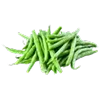
Green Beans
Low in calories and high in fiber, aiding digestion and keeping them full.

Sweet Potato
Nutrient-dense with fiber, helping digestion and providing essential vitamins.
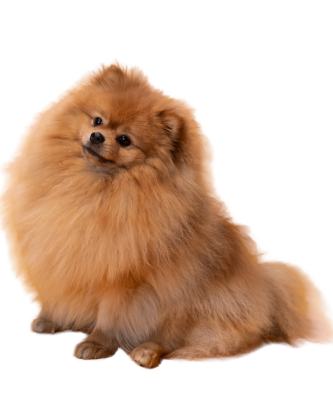
Training Needs for Pomeranian
Pomeranians are intelligent and eager to please, which makes them highly trainable. However, their bold and sometimes stubborn nature can lead to habits like excessive barking or “small dog syndrome” if not guided properly with firm, consistent training.
With consistent training, positive reinforcement, and early socialization, Pomeranians quickly learn commands and good manners. They are energetic and thrive on daily exercise, such as short walks or indoor playtime. A mix of mental stimulation and physical activity keeps Pomeranians happy, healthy, and well-behaved, while also preventing boredom-related mischief.

Puppy Stage (2–6 months)
Pomeranian puppies are tiny yet bold, with playful energy and curious minds. Early training should focus on potty and crate routines, along with basic commands like Sit, Stay, and Come. Since Poms are naturally vocal, guidance is needed to manage barking from the start. Short leash walks and gentle socialization help them grow confident without becoming bossy or nervous, while chew toys keep teething under control.
Suggested Package: 8 Sessions

Adolescent Stage (6–18 months)
In their teenage phase, Pomeranians often push boundaries and become more vocal and independent. Consistency is key to control barking and maintain obedience. Leash training, impulse control, and recall are especially important to manage their curiosity and “big dog” attitude. Short, engaging activities like fetch, agility, and puzzle toys keep their sharp minds occupied and prevent stubborn habits from setting in.
Suggested Package: 12 Sessions

Adult Stage (1.5 years +)
Adult Pomeranians remain lively, intelligent, and protective, making refined training essential. Focus on advanced commands like Heel, Leave It, and extended Stay, while reinforcing leash manners and recall in busy settings. Since Poms can become territorial or overly vocal, ongoing social training and mental stimulation through tricks and interactive play keep them confident, obedient, and well-mannered companions.
Suggested Package: 16 Sessions
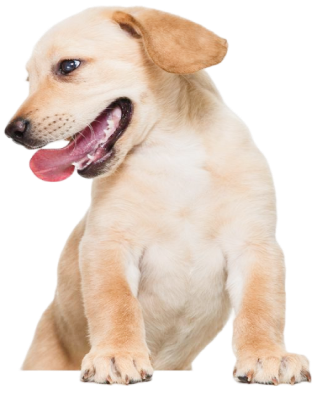
Dog Training: Expert Guidance at Home
Turn your pup into a well-mannered pro—where training meets success

Vet Visits

Puppyhood (0-1 Year):

Every 3-4 weeks until 16 weeks, then every 6-12 months.

Vaccinations, parasite control, neutering, and behavior guidance.
Adulthood (1-6 Years):

Annual check-ups.

Vaccine boosters, dental care, diet, exercising, weight management.
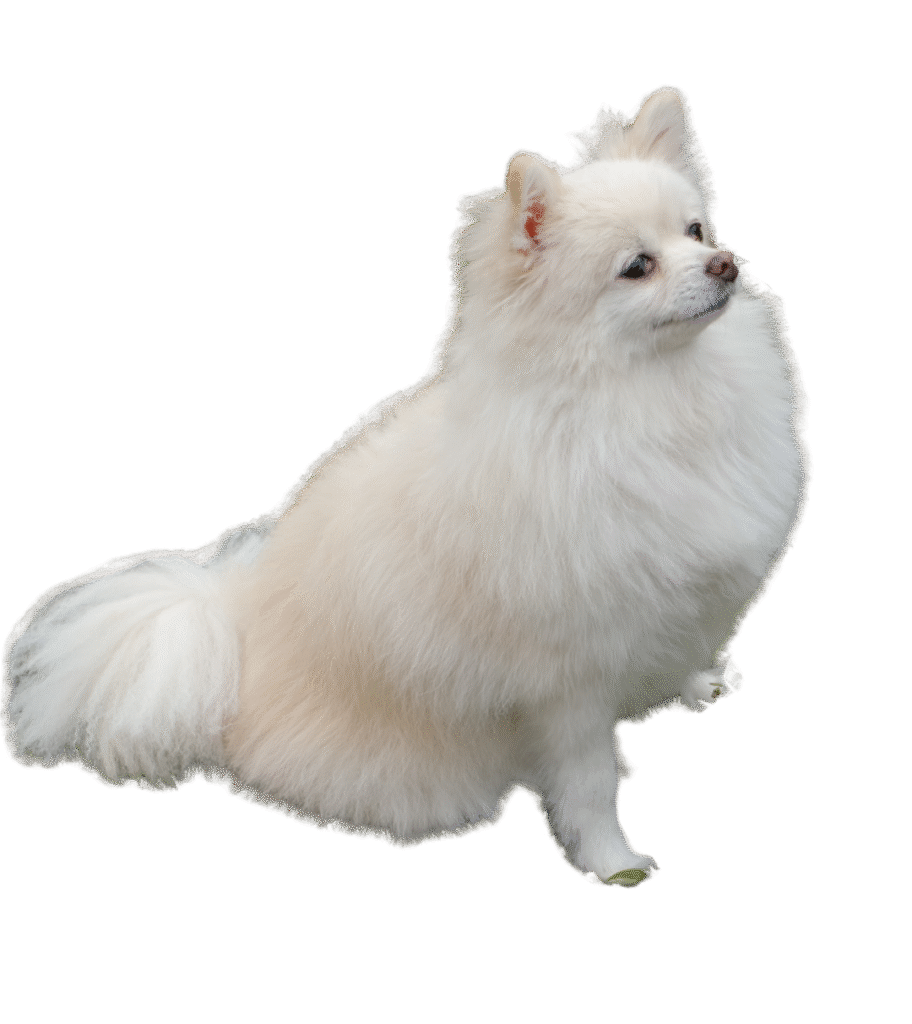
Mature adulthood (7-9 Years):

Annual or bi-annual visits.

Senior screenings, joint health, vision and hearing checks, and diet adjustments.
Senior years (10+ Years):

Bi-annual visits or more.

Comprehensive exams, pain management, cancer screening, quality of life, and senior nutrition.
Vaccination Schedule

First
6-8 week
Second
10-12 week
Third
14-16 week
Regular
Yearly once
Grooming
Pomeranians have a beautiful, long, double coat that requires significant grooming. They should be brushed 2-3 times a week to manage shedding, prevent matting, and remove dirt. Bathe them every 3-4 weeks to keep their coat clean and fluffy.
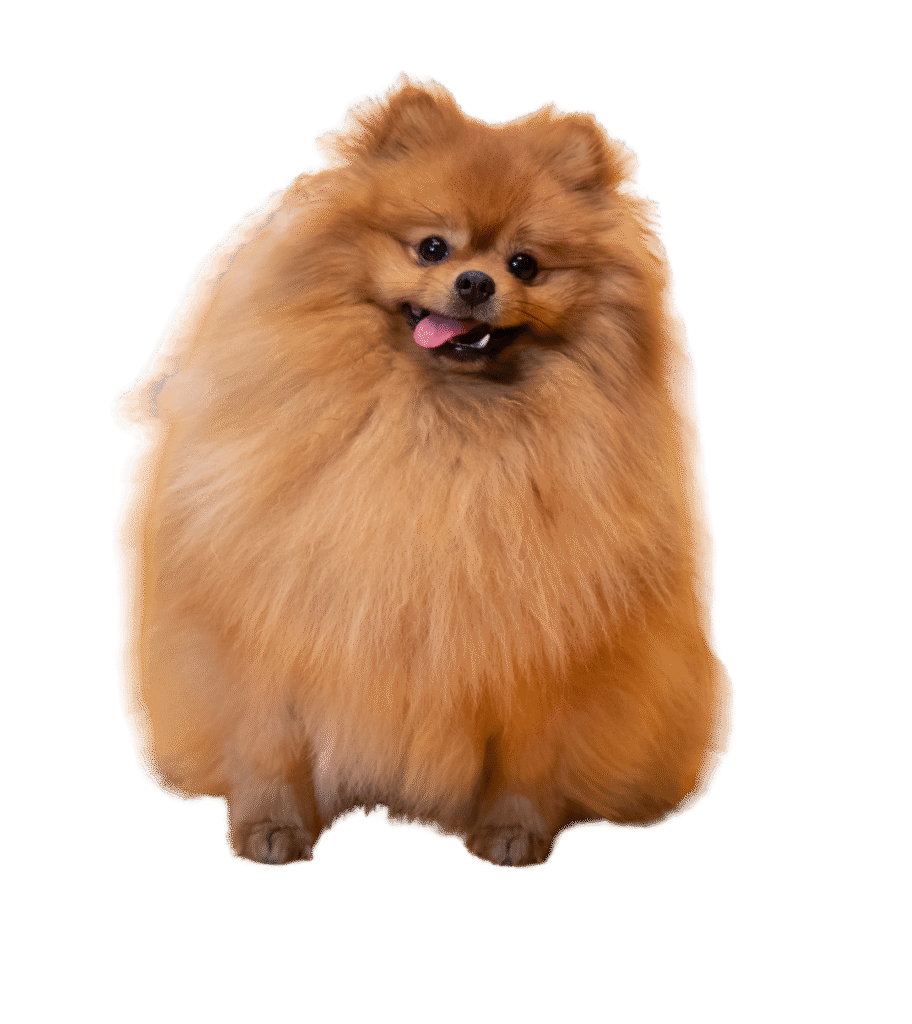
Brush & Bath guide
Pomeranians should have their ears checked and cleaned about once a week to prevent infections. Use a vet-recommended ear cleaner and a cotton ball to gently wipe the outer ear. Regular checks help maintain overall ear health.

Ear Cleaning
Labradors should have their ears checked and cleaned about once a week to prevent infections and wax buildup. Use a vet-recommended ear cleaner and cotton balls to gently clean the outer ear. Regular checks help maintain ear health.
Nail clipping & Paw care
Pomeranians should have their nails checked and clipped regularly—typically every 2 to 3 weeks. Their small size means their nails can overgrow quickly, which can cause pain and difficulty walking. Regular checks of their paw pads for cuts or irritation are also recommended.
Period Care
During her period, use doggy diapers, provide comfort, and monitor her health. Keep her calm with extra attention and gentle care to ensure she feels secure.
Dental Care
Pomeranians are highly prone to dental disease due to their small mouths, so regular dental care is crucial. Brush their teeth daily to prevent plaque buildup. Additionally, provide dental chews and schedule annual vet check-ups to maintain oral health.

Give Your Pomeranian a Spa Day at Home!
👉 Regular grooming not only keeps shedding under control but also prevents skin infections and keeps your pup comfortable year-round.
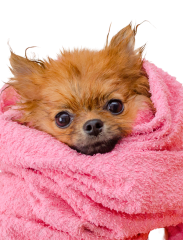

Health Conditions for Pomeranian

Collapsed Trachea
This is a common condition where the trachea becomes flattened, making it difficult for the dog to breathe.
Symptoms:
Wheezing, coughing, gagging, and difficulty breathing.
How to avoid:
Avoid excessive weight gain and use a harness instead of a collar to prevent strain on the neck.
Luxating Patella
This is a condition where the kneecap slips out of place, causing pain and lameness.
Symptoms:
Limping, skipping, or avoiding weight-bearing on the affected leg.
How to avoid:
Avoid excessive jumping and sudden changes in direction.
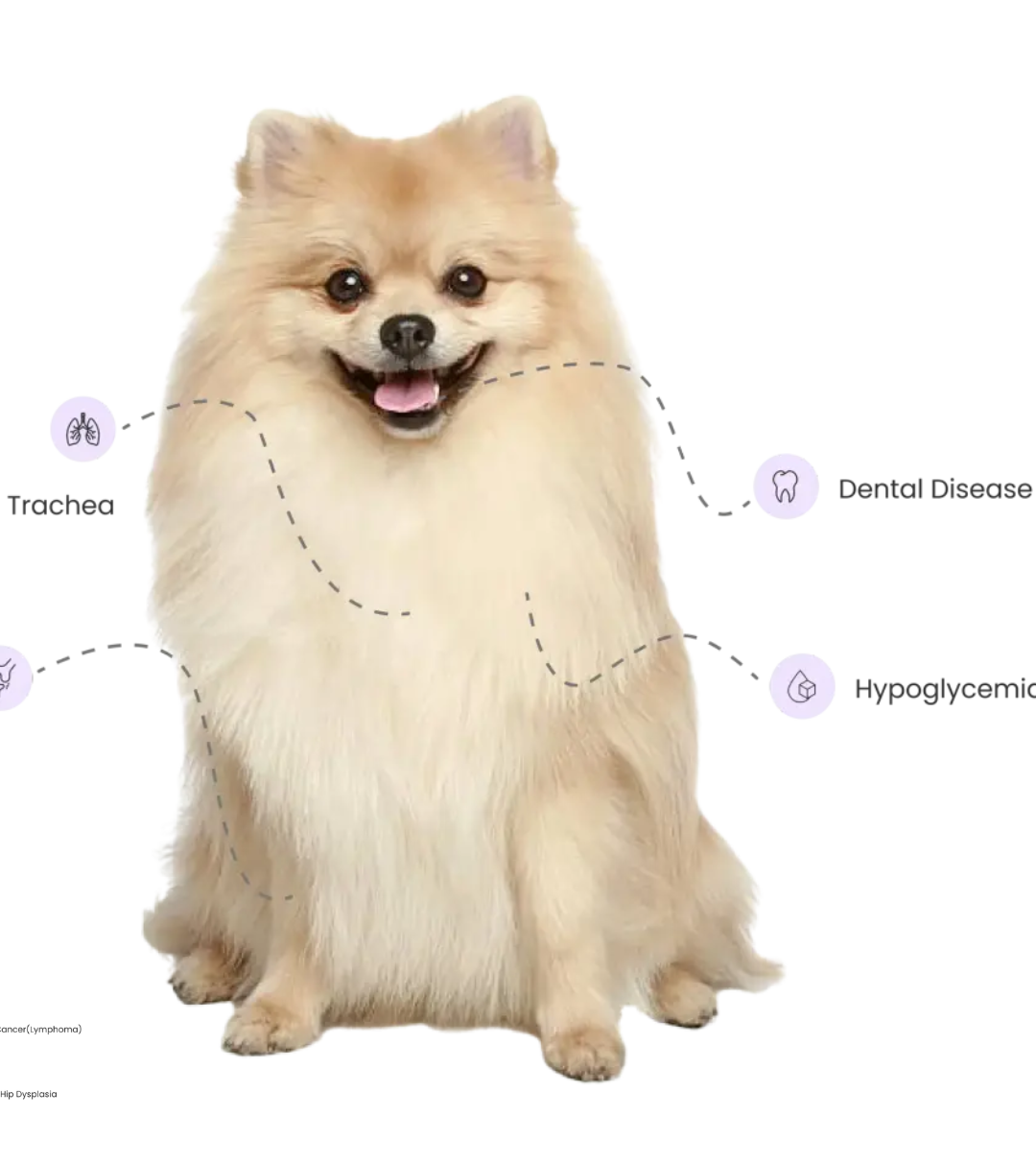
Dental Disease
Dental problems, such as periodontal disease and tooth decay, are common in small breeds like Pomeranians.
Symptoms:
Bad breath, excessive drooling, difficulty eating, and swelling of the gums.
How to avoid:
Brush your Pomeranian’s teeth regularly and provide dental chews.
Hypoglycemia
Low blood sugar levels that can occur in small dog breeds like Pomeranians.
Symptoms:
Weakness, lethargy, trembling, and seizures.
How to avoid:
Feed small, frequent meals of high-quality food and monitor for signs of low blood sugar.
Frequently Asked Questions

Pomeranians are ideal if you want a small, lively, and affectionate companion. They are intelligent, alert, and make great family pets, apartment dogs, and travel companions. This breed thrives with daily exercise, mental stimulation, and grooming. They are best suited for owners who can commit to handling regular brushing, socialization, and training. With proper care, Pomeranians are loyal, playful, and highly rewarding pets.
Pomeranian puppies are energetic, curious, and social. Early socialization, structured routines, and house training are essential to raise a confident and well-behaved adult. Begin gentle exposure to new people, pets, and environments to prevent fearfulness or excessive barking later.
Take your puppy outside after meals, naps, and playtime. Reward immediately when they go in the right spot. Follow this 90-day toilet training schedule:
Week 1–2: Take outside every 1–2 hours. Praise and reward
Week 3–6: Gradually extend intervals to 3 hours. Maintain consistent praise.
Week 7–12: Encourage longer outdoor intervals and introduce commands like “Go potty.” Supervise indoors to prevent accidents.
Pomeranians are small but energetic. They need 30–45 minutes of daily exercise, ideally split into 2–3 short walks per day combined with indoor play and mental stimulation to prevent boredom and destructive behavior.
Feed a high-protein, small-breed puppy diet to support growth, muscle development, and dental health. Include essential nutrients such as omega-3 fatty acids, calcium, and vitamins. Adult Pomeranians require balanced meals with controlled portions to avoid obesity.
Brushing: Daily brushing is recommended to prevent mats and tangles in their double coat.
Bathing: Every 3–4 weeks with mild shampoo.
Trimming: Every 2–3 months, especially around paws, sanitary areas, and face.
Nail care: Trim nails every 3–4 weeks.
Start training from 8–9 weeks using positive reinforcement. Teach commands like sit, stay, come, and leash walking. Early training helps manage their natural alertness and prevents excessive barking or stubborn behavior.
Schedule regular vet visits, vaccinations, and deworming. Feed a balanced diet, provide mental stimulation, and maintain dental hygiene. Watch for breed-specific issues like luxating patella, dental problems, and tracheal collapse. Preventive care ensures a long and healthy life.
